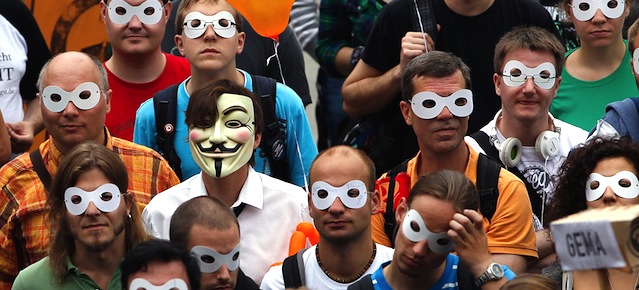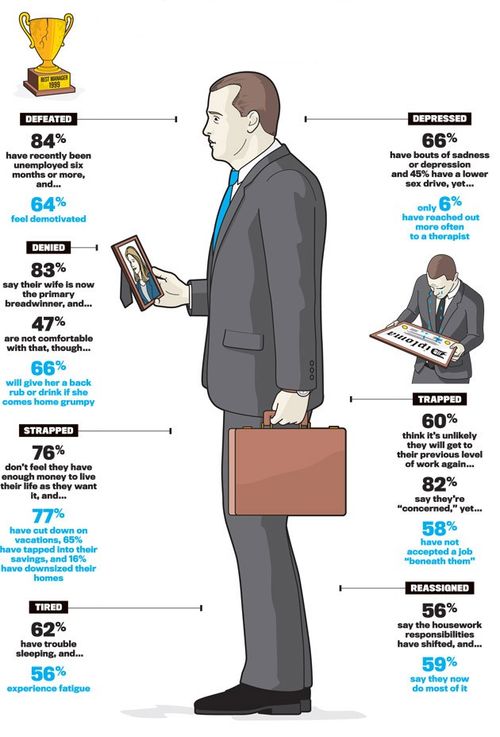
Note: an updated and expanded version of this post appears as an essay in The Deja Vu Issue of The Mockingbird print magazine [8/15/18].
I was bowled over a few years ago at the graduation of a family member from a high-profile college. Before the seniors walked up to receive their diplomas, a number of awards were announced. Academic awards and service awards and all-around achievement awards, about ten in all. As is normally the case at such functions, I was only half tuned-in, dreaming about some rare Beach Boys records I was thinking about ordering or something. So I didn’t notice what was happening until about six proud winners had shuffled up to the stage. All of them were young women. In fact, of the ten (I still have the brochure), only one went to a young man, and that was because it stipulated a male recipient.
Lacking anything better to do, I scanned the list of those graduating with honors (“cum laude”, “magna cum laude”, “summa cum laude”), and discovered that it was nearly three-quarters female. Not half or two-thirds but three-quarters! These were gender-blind categories, there were no committees or quotas governing them; based purely on GPA, the guys were not just under-achieving, they barely seemed to be achieving at all.
 I had heard about the “Mancession” going on in this country but had written it off as a hyped-up story designed to play on white-male grievances and sell magazines (and movie tickets!)… Everywhere I looked I saw the fallout of the impossible double standards being foisted on women, not men. And my experience as an educated white man was one of undeniable privilege, not victimhood, no matter what certain talk-radio personalities were claiming. But the graduation I witnessed was telling a different story. Either our nation’s boys had all rapidly lost IQ points, or the pundits were right and something systemic was working against them.
I had heard about the “Mancession” going on in this country but had written it off as a hyped-up story designed to play on white-male grievances and sell magazines (and movie tickets!)… Everywhere I looked I saw the fallout of the impossible double standards being foisted on women, not men. And my experience as an educated white man was one of undeniable privilege, not victimhood, no matter what certain talk-radio personalities were claiming. But the graduation I witnessed was telling a different story. Either our nation’s boys had all rapidly lost IQ points, or the pundits were right and something systemic was working against them.
Normally, the Buffy the Vampire Slayer fan in me would chalk the graduation stats up to female ingenuity, applaud the ladies–maybe blame the guys for being so easily threatened–and move on. But this was a little different. We had a son on the way. The raising of boys was very much on my mind. What was going on? Hopefully this was just one egregious and institution-specific exception.
Within a few months we had moved to Charlottesville, where, in addition to my responsibilities with Mbird, I would moonlight as a campus minister at the University of Virginia. I’m now in my sixth year of running small groups, listening to young men talk, and watching them interact on a daily basis, and my concerns have only grown. The guys are checking out of their studies, which they increasingly view as the domain of women. The same goes for public service (including Christian ministry). From what I can tell, with some notable exceptions, college-aged guys have retreated into a labyrinth of video games, alcohol, and Internet pornography. This may sound alarmist, but hey, it is alarming. And I’m not sure it’s limited to college students.
Usually when I ask someone about the gap, I get some version of, “well, sure, the boys are having a hard time, but isn’t it great that the girls are finally getting their chance to shine?” The boys have had their day in the sun, in other words, but they will be just fine in the long run, you’ll see, they just take a little longer to mature, etc. Fair enough. No one begrudges the girls their success (well, maybe some)–we should praise God they’re doing so well! But isn’t there something a little troubling about the pseudo-karmic retribution implicit in these statements?
Remarkably, almost no one denies that the gap exists. Just talk to a pre-school teacher in any affluent suburb. The boys are falling behind. I had this confirmed recently by an admissions officer at an Ivy League school who told me that if their admissions were gender-blind, the male-female split would be close to 30-70.
To talk about the issues facing boys doesn’t diminish those facing girls. The double standards that women face in our society are criminal, and Lord knows we’ve spilled some ink (and tears) on the subject. But when those injustices become an excuse–conscious or not–for the demoralization of boys, as if the promotion of one group necessarily entails the demotion of the other, well, it’s a depressing predicament to say the least, one overburdened with a sense of deserving and law that brings out our very worst inclinations.
All this was in the back of my mind when I came across two bits of relevant (if slightly divergent) media over the holidays. The first was a trailer for an upcoming documentary from the people behind Miss Representation called The Mask You Live In, which outlines the ever-narrowing little-l law of “being a man” in America. There’s some real language in there, but it’s the necessary kind:
If the talking heads in the trailer are to be remotely trusted, then the definition of what it means to “be a man” these days leaves virtually no space for those interested in being human. Speaking as a guy who has little-to-no interest in traditional male identity markers like sports and cars and tanks (he said, smugly), it would appear that there is even less locker room for those who relate more to Brian Wilson than Mike Love than there historically has been. The Law of Masculinity seems to have responded to feminine ‘encroachments’ by heading in the opposite direction, shoring up the banks of Lake Testosterone by inflating the machismo and disallowing ‘girly’ things like emotion or vulnerability, to say nothing of weakness.
These tactics, if they can be called such, have backfired royally. Those who try to measure up find themselves in serious trouble, while those who don’t are left feeling adrift and alienated and disposable. This has always been true to a certain extent, of course, but then one reads an interview like the one that “notorious Amazon feminist” (and professional provocateur) Camille Paglia gave to the Wall Street Journal recently.
As someone who is pretty much despised by ideologues of all persuasions, it’s hard not to admire Paglia’s guts, and the WSJ interview may be the apogee of her appeal. Gleefully offensive one second, wise and courageous the next, un-PC in the extreme (anti-PC is more like it), nothing about Camille Paglia is neutral. Think a slightly more serious Frannie Lebowitz. Even if you don’t agree with what she says, her courage is refreshing, and her gift for overstatement will get you thinking. It was her comments on gender politics–particularly the state of men–that drew me in:
“…the way gender is being taught in the universities—in a very anti-male way, it’s all about neutralization of maleness.” The result: Upper-middle-class men who are “intimidated” and “can’t say anything. . . . They understand the agenda.” In other words: They avoid goring certain sacred cows by “never telling the truth to women” about sex, and by keeping “raunchy” thoughts and sexual fantasies to themselves and their laptops.
If this were a man talking, it would be hard to stomach. And it’s not exactly easy to stomach regardless. I mean, one highly, highly doubts that there is an elaborate anti-male conspiracy going on in our nation’s (still rather male-dominated) universities. Yet, judging from what I’ve seen firsthand, there may indeed be some over-correction going on, some ways in which maleness is being held against those with a Y chromosome. So while I can’t confirm Paglia’s diagnosis 100%, if the palpable hesitation I feel writing about this subject at all is any indication, the result she mentions–the feeling/fear that you “can’t say anything”–contains more than a shred of truth.
Perhaps another way to put this is that when ideology (what must be true) and reality (what is true) come into conflict, ideology can hold sway for only so long before the cracks start to show. We tend to track this phenomenon more often on the conservative side of the spectrum, where religious dogma (and misused Law) puts people at odds with themselves or their experiences, and the rifts cause untold damage. But it turns out this tendency is equally pronounced on the left. The Law may not have spiritual content in a secular context, but that doesn’t mean it isn’t just as inflexible or oppressive. We are talking about something universal after all. When Paglia describes the double lives (“never telling the truth”) men often live in response to the dogma they encounter about gender, it’s not dissimilar from the splitting that happens in legalistic religious situations. And no one wants that.
In unguarded moments, the young men I work with acknowledge their disengagement, and more than that, they articulate a confusion and even ambivalence about what it means to be a man. They can make jokes about traditional male identity until the cows come home, but at least among the Ralph Lauren/UHB crowd, there’s an inability (or severe reluctance) to talk publicly about anything distinctly male, especially anything distinctly positive and male. To do so, they tell me, one runs the risk of A. sounding like a spoiled child (their perceived privilege invalidating any objections they may raise) or B. being accused of misogyny (as if being ‘pro’-male automatically equates to being ‘anti’-female). In a Christian context, you run the risk of sounding like one of those guys. It often feels like our country’s discussion of masculinity, much like its discussion of religion, has lost all of its moderate voices.
 So rightly or wrongly, these young men withdraw. Not wanting to risk failure–which they’ve been told is a fate worse than death–and afraid of crying foul, they opt not to compete, and often end up relating to women solely as sex objects. Which seems easier but usually makes the situation even worse. Indeed, if reports are to be believed, the girls may be dominating the daylight hours, but it’s a different and all too familiar story when the sun goes down.
So rightly or wrongly, these young men withdraw. Not wanting to risk failure–which they’ve been told is a fate worse than death–and afraid of crying foul, they opt not to compete, and often end up relating to women solely as sex objects. Which seems easier but usually makes the situation even worse. Indeed, if reports are to be believed, the girls may be dominating the daylight hours, but it’s a different and all too familiar story when the sun goes down.
Again, the issue is not what a person wants to say or even the issue of masculinity (or gender politics) itself. A person’s feelings/convictions may be totally loony or even straight-up destructive, but if their very existence is refused, they will only become amplified. The Law increases the trespass, pure and simple. Or in this case, when silence becomes the only legitimate option open to a person, rage is a foregone conclusion. And if anything defines American maleness in the 21st century it is silent rage, the kind that boils over in web comments sections or worse, unsuspecting shopping malls. The irony here is that the situation may not be too distant from the despair and bitterness that women who grow up in certain kinds of fundamentalist environments experience. Paglia goes on:
Politically correct, inadequate education, along with the decline of America’s brawny industrial base, leaves many men with “no models of manhood,” she says. “Masculinity is just becoming something that is imitated from the movies. There’s nothing left. There’s no room for anything manly right now.” The only place you can hear what men really feel these days, she claims, is on sports radio. No surprise, she is an avid listener. The energy and enthusiasm “inspires me as a writer,” she says, adding: “If we had to go to war,” the callers “are the men that would save the nation.”
As an aside, I’m reminded of a story that Woody Allen told about casting Interiors. He was looking for a ‘regular man’ to play one of the husbands in the movie. Not a particularly troubled guy, or macho guy, or dashing guy, or neurotic guy, just a solid and recognizable man. He remarked that it was much more difficult than he’d expected, that after he finally lit upon Sam Waterston, he realized why Waterston gets so much work: “There are no ‘normal’ men in Hollywood.” I’m sure you can think of plenty of exceptions, but the observation stands.
 As another aside, the recent episode of This American Life, where Ira and co visit a car dealership on Long Island, is a must-listen for those interested in this topic. If you can get beyond the slight animals-in-the-zoo vibe, it captures “men being men” in an unabashedly positive way, albeit it one that for whatever reason seems unavailable to the college-educated species. Just witness the hilarious discrepancy in temperament between the salesmen and the journalists. (And isn’t it sad how the phrase “men being men” conjures up almost exclusively negative associations?). But lest you think that Paglia is a self-hating feminist, immune to the plight of her sex, she adds:
As another aside, the recent episode of This American Life, where Ira and co visit a car dealership on Long Island, is a must-listen for those interested in this topic. If you can get beyond the slight animals-in-the-zoo vibe, it captures “men being men” in an unabashedly positive way, albeit it one that for whatever reason seems unavailable to the college-educated species. Just witness the hilarious discrepancy in temperament between the salesmen and the journalists. (And isn’t it sad how the phrase “men being men” conjures up almost exclusively negative associations?). But lest you think that Paglia is a self-hating feminist, immune to the plight of her sex, she adds:
And men aren’t the only ones suffering from the decline of men. Women, particularly elite upper-middle-class women, have become “clones” condemned to “Pilates for the next 30 years,” Ms. Paglia says.
Now that’s obviously a lot to take in. She paints a dark picture.
One thing we’re fond of saying when it comes to identity markers, even biological ones, is that human nature is evenly distributed. Sin is not a male issue, or a white issue, or a youth issue–it is a human issue. Scapegoating, therefore, is a fundamentally false practice. But maybe that’s just something a man in my position would say. It could very well be that men do need to recede. As the Cornetto Trilogy reminds us, we have failed, in pretty much every respect imaginable. Maybe we truly do deserve to be put in the corner and ‘neutralized’. Maybe it’s well past time to step out of the way and let the ladies give it a shot. They certainly couldn’t do any worse than we have.
The hope for boys and for men does not lie in winning the war of the sexes, or regaining lost ground, or reclaiming status. Thank God. Men cannot be challenged into actual re-engagement anymore than women can, nor will they find any consolation or inspiration in playing the blame game. We cannot look to categories of identity, period. That way lies death. The hope for boys and for men is the same hope that greets perpetrators and failures and scared children of all kinds. It’s the hope of forgiveness, the assurance of love, and the freedom of the justified. The gift of God’s grace, in other words. We may not like it at first, we may do everything we can to avoid it, we may even try to crucify it, but one thing’s for sure: it will not fail. Who knows, it may even get us to press pause.
http://www.youtube.com/watch?v=zGkXPzcmuPQ
P.S. For more on this topic, click here.

COMMENTS
16 responses to “Underachieving Boys and the Masks Men Wear”
Leave a Reply













Out of the park, Dave. My fave quote: “They avoid goring certain sacred cows by “never telling the truth to women” about sex, and by keeping “raunchy” thoughts and sexual fantasies to themselves and their laptops.” Painful, but true.
Great post! I have four sons, and these struggles definitely resonate.
Wonderful post. This is an issue that has bugged me for a while. Thank you for bringing it up. A few years ago, I discovered a blog that unabashedly addresses the issue: The Art of Manliness (http://www.artofmanliness.com/). I especially find the articles on what it is like to be a man in history; they did a series on honor codes not long ago that was fascinating.
A recent Salon article about men and friendship (and the alarming lack of intimacy in friendships between men) includes this line:
“During this time (adolescence) young men are learning what it means to be a “real man.” The #1 rule: avoid everything feminine.” If this is the case, then what you may be seeing is men backing away from arenas in which women have begun to take up space.
http://www.salon.com/2013/12/08/american_mens_hidden_crisis_they_need_more_friends/
Its hard to pull everything apart and look at it. About the preschool divide, my son did just as predicted –caught up by late elementary. Maybe we’re looking at some developmental differences, with preschool girls better at small motor and verbal skills. But that can even out in a short time. About men in ministry and service, I’m not sure where economics figures in, but I hear college students say all the time that their parents are “worried” about their career choices and the income they might produce. That may be about selfish entitlement, or it may be a reflection of the nervousness of the middle class as a whole. And to the extent the tradition still holds, women worry less about income, because of the presumption that men will be the primary breadwinners.
As for men keeping their raunchy thoughts and sexual fantasies to themselves. Not sure I want to imagine the alternative.
But thank you for that last crucially important paragraph!
This article made me think about the James Franco/Seth Rogan movie “This is the End”. It’s full of men-as-adolescents behavior, even as they’re having to deal with the apocalypse. So now I wonder if, consciously or unconsciously, the apocalyptic theme was intended as a (final) judgement/destruction of the American male.
Your statement “We cannot look to categories of identity, period. That way lies death.” – I guess this is more of a statement of feminist orthodoxy than anything else (despite the added grace emphasis). It may actually contain within it some of the root of the trouble. But yes, sin and law messes with everything, categories or otherwise.
Men are hiding but women are shrinking, at least according to this viral poetry slam performance.
http://m.youtube.com/watch?v=zQucWXWXp3k&desktop_uri=%2Fwatch%3Fv%3DzQucWXWXp3k
Really great piece DZ. I enjoyed it thoroughly. Although part of me wonders if much of the underachieving you speak of by males may have a much simpler explanation…laziness (relationally, professionally, and spiritually) particularly among males. In much the same way that many complacent Americans have been leap frogged by hungrier, harder working folks from outside of the states, I see similar dynamics playing out among males who assume their gender and social standing affords them a corner office and beautiful wife without much effort at all on their part. I can speak from first hand experience that I’m not willing to work nearly as hard as my father did to provide for a family or even find a wife. And when I’m feeling lonely or in need of spiritual nourishment, it’s much easier for me to crack open a bud light and turn on SportsCenter than to open the Bible or call a Christian brother. What’s the answer? Clearly the grace and encouragement of fellow Christian men is paramount, but I think it’s also important to impart “old school” values of sacrifice and work ethic to today’s “everybody gets a trophy” generation of boys. Am I totally off base here? I’d love to hear your thoughts.
We should mention the Perfect Man, Jesus. He was soft and gentle and compassionate when he needed to be, and a strong and bold and tough when he needed to be. He was exactly what he needed to be at just the right time. We men get it all reversed, macho when we should be loving and wimpy when we should be tough. The only real man who ever lived was Jesus. The rest of us are just wannabes (and oh, how I want to be like Him!)
Males are falling behind (broke wrist so shorter) due to differential treatment. The more aggressive treatment from one year onward and increased creates higher layers of mental frictions or high average stress. This creates higher muscle tension that hurts handwriting/motivation; more activity for stress relief; and impeded reading, that along with lower social/emotional/mental support and the social/emotional distance created from this treatment creates three bad things for reading motivation: low social vocabulary; high average stress (less mental energy for reading and enjoyment); and improper pace and intensity in approaching mental work (higher average stress feeds onto improper pace and intensity or trying too hard. The lag in communication is also amplified as they grow up with peers and teachers. The myth of genetics causes many Males already short changed to go into sports, video games, or other areas to receive tid bits of love/honor not given in society (boys are only given love/honor on condition of achievement, status, and given more ridicule aggression as the stick to make them try harder.
The girls are given much kind, stable,verbal interaction, and other mental/emotional/social supports just for being girls. This is continued and maintained by society through adulthood. this treatment is perfectly designed for the information age. My theory on site has many applications for society.